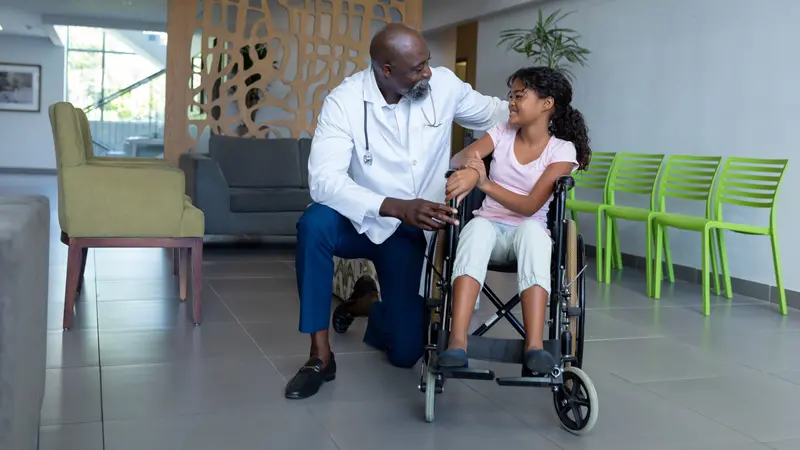

Professional

Professional
Doctors Struggle to Provide Quality Care for Disabled
A recent study found that only about 41% of doctors in the US feel they can provide the same quality of care for patients with disabilities as for those without them. Twenty-six percent of Americans are diagnosed with some type of disability, and it is projected that by the year 2050, disabilities in older adults and senior citizens will double. Published in Health Affairs, the study revealed a general lack of understanding of the disabled on the part of doctors.
Researchers from Harvard and Massachusetts General Hospital surveyed more than 700 doctors from a range of fields in 2019-2020. Findings uncovered that more than 80% did not strongly agree that the healthcare system often treats people with disabilities unfairly.
Just 57% of doctors “strongly agreed” that they welcomed people with disabilities into their practice. The study also found that physicians believe the disabled have limited happiness even though half of those with disabilities say they have a good or excellent quality of life.
Lead author of the study, Lisa Lezzoni, MD, MSc, is a professor of medicine at Harvard University Medical School. According to Lezzoni, most physicians do not fully understand how people with disabilities live. She explains, for example, that doctors do not think people with disabilities are sexually active, so they don't talk to them about contraception.
According to the Centers for Disease Control and Prevention, one-third of adults with disabilities under the age of 65 lack a usual healthcare provider, while a quarter have not had a routine checkup in the past year. Many with disabilities are more at risk for health issues. Heart disease afflicts 12% of people with disability, compared to about 4% of others. People with a disability are more inclined to be obese, get diabetes, or smoke tobacco.
The study concluded that all levels of medical education should encompass more training regarding the disabled, including disability cultural competence and etiquette. With greater understanding and empathy about the daily lives of disabled patients, healthcare practitioners can cater to their specific needs and provide the best care possible.
REFERENCES
Syms, L. (2021, June 11). Many US physicians lack understanding, confidence about patients with disabilities. Public Health Newswire, American Public Health Association. http://www.publichealthnewswire.org/Articles/2021/06/11/Doctors-patients-with-disabilities


 By
By







